As a civilization that prospered for nearly a thousand years, Ancient Greece has produced some of history’s most memorable characters. And since we most often remember a society’s leaders, it comes as no surprise that the most famous of all the ancient Greeks were kings, generals, and politicians.
Together, they make up an all-star roster of ancient people, all of whom left behind a legacy that remains alive even today.
Now, let’s pull out the red carpet and get ready to meet some of the most famous Greeks of all time.
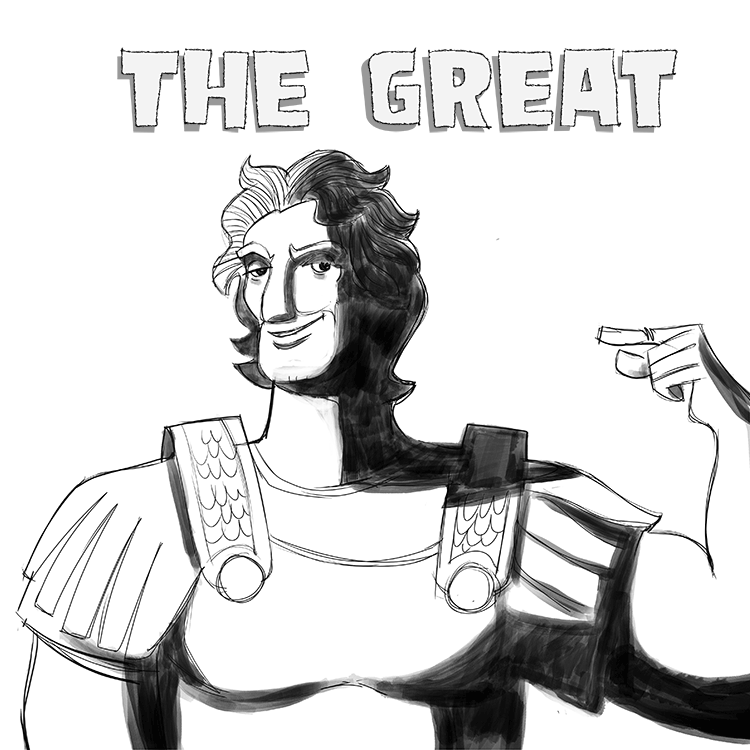
Alexander the Great (356 BC – 323 BC)
Probably the most famous Greek ever wasn’t technically Greek. Instead, he came from Macedon, a region to the north of Greece. However, he soon became Greek by conquering Athens, Sparta, Corinth, Thebes and the rest of the Greek city-states. But he didn’t stop there. Instead, he went on to conquer Persia and Egypt, and he brought his armies as far east as India. And he did all of this in about 20 years.
This established the first true Greek empire. But it also ushered in what is now known as the Hellenistic Era, a period in which Greek culture and influence spread from Italy in the west to India in the east.
Alexander’s empire broke up after his untimely (and somewhat mysterious) death in 323 BC. But the kingdoms that emerged from the rubble grew to be powerful and influential, cementing Greece’s place in history.
Eventually, Roman armies moved into eastern Europe and western Asia, conquering most of the territory that had once been Alexander’s. But by this point, Greek was the most spoken language in Europe and Western Asia. So much so that it was spoken on the streets of Rome just as much as the native Latin.
So, while Alexander the Great didn’t live very long, his contribution to Greece’s legacy remains unmatched. He is the most famous Greek.
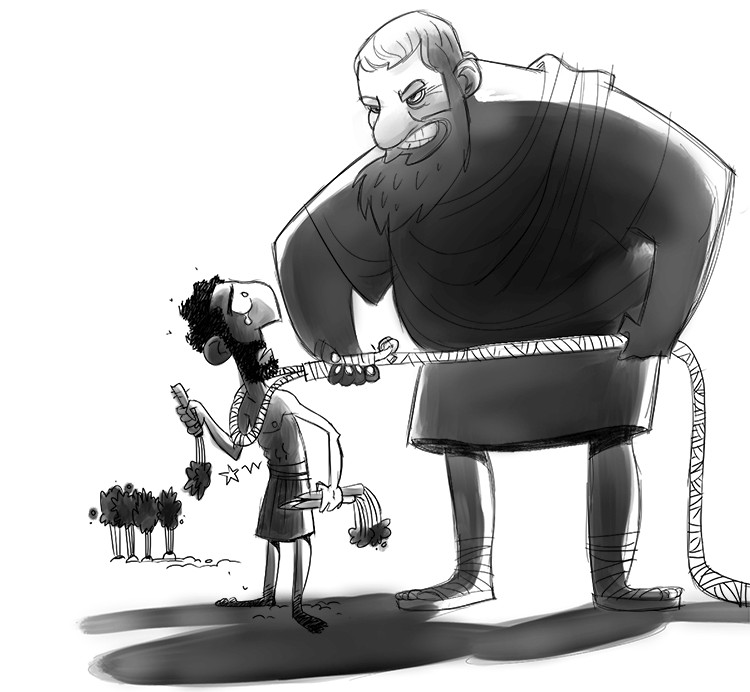
Draco (650 BC-600 BC)
Draco makes the list, though not for his good deeds. Instead, he was one of the most destructive leaders of Ancient Greece, imposing laws that made life just downright scary.
A member of the upper class, he was most concerned with maintaining the status quo and keeping people oppressed. For example, he made it possible for wealthy people to enslave those who owed them a debt, and he also sentenced poor people to death if they were caught stealing vegetables. Like, really?
He also was one of the first Athenian leaders to write down laws and post them publicly, a move likely designed to intimidate the lower classes.
In fact, his laws were so extreme that a new word was invented to describe them that’s still used today: draconian. That’s one way to leave a legacy…
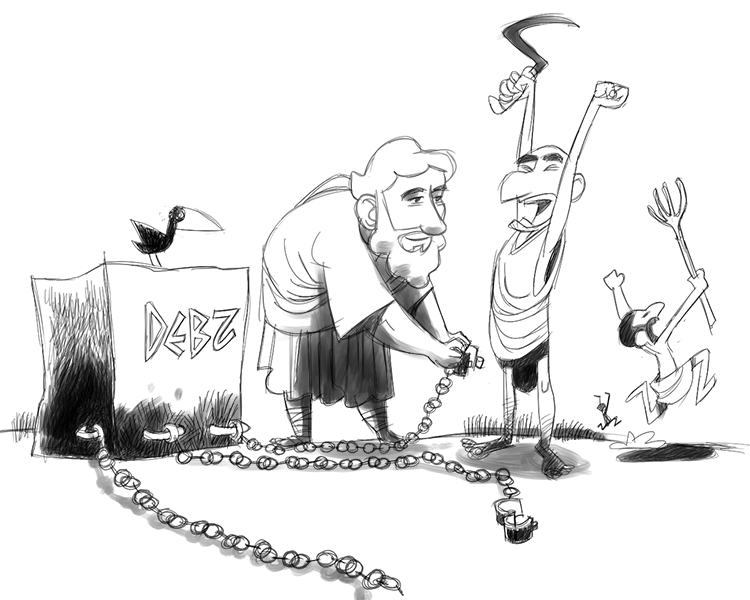
Solon (630 BC – 560 BC)
After Draco, life in Athens was…not great. But then came Solon. Named the leader of Athens in 594 BC, he was elected to represent the wealthy class from which he came. But when he took power, he did a complete 180. Recognizing that Athens was on the brink of revolution, he introduced reforms that took power away from the aristocracy and put it more in the hands of regular people.
For example, he changed Athenian law so that any wealthy person could become a judge. Before, you had to be wealthy and a member of a high-standing family. Such a change made it possible for more people to become members of the state, giving Athens its first taste of democracy.
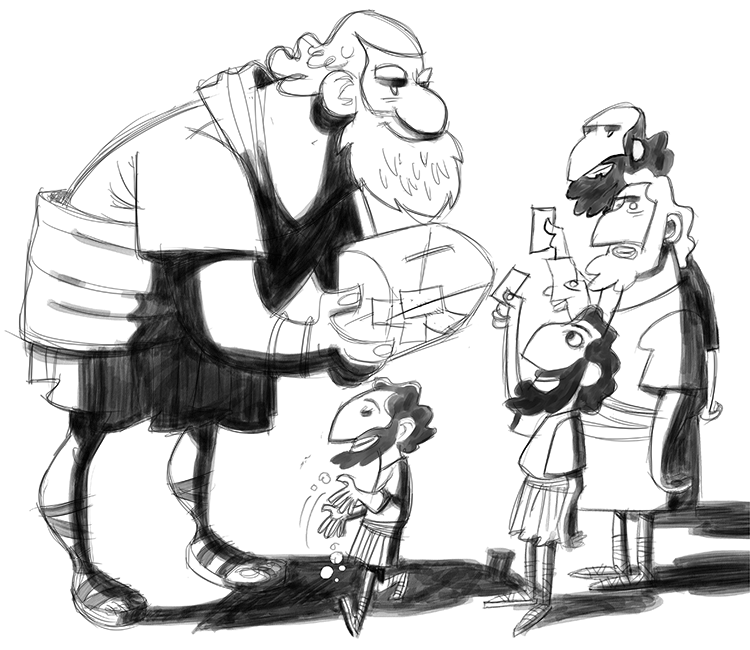
Cleisthenes (570 BC-508 BC)
Once Athens tasted democracy, all it wanted was more. So, when Cleisthenies got support from rival Sparta to stage a coup and take over the Athenian government, at the time controlled by a handful of aristocratic families, the people were all about it. And once in power, he remade the Athenian constitution and established democracy as the primary form of government.
This marked a dramatic change in the history of Athens and also the world. It was the first democracy ever. And it remains the model for most governments today.
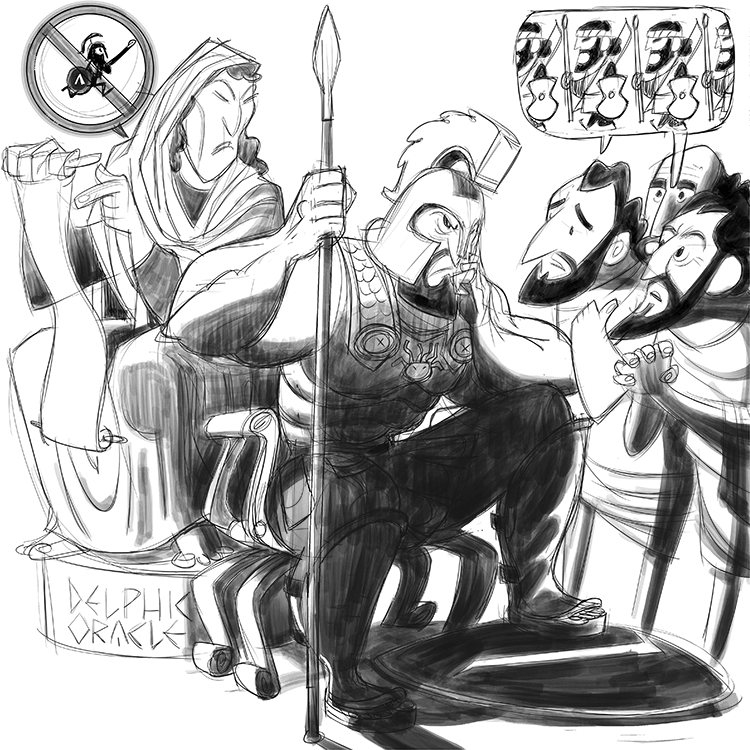
Leonidas (494 BC-429 BC)
Up until now, the Greek dream team has been dominated by Athenians. But let’s not forget about Sparta. For this strong, militaristic city-state, though, the conversation begins and ends with Leonidas.
One of the city’s two kings during the Greco-Persian Wars, Leonidas was instrumental in saving Greece from total annihilation at the hands of the Persians.
As the story goes, the Athenians approached Leonidas to recruit his help in the fight against Persia. A tough sell considering the Spartans hated the Athenians and vice versa. Yet Leonidas was able to put aside his hatred and recognize the threat the Persians posed. So, he decided to help. But since the Greeks didn’t go to war without the consent of the gods, he first had to consult the Oracle at Delphi, which told him not to go to war because it would be happening during an important festival dedicated to the god Apollo.
This put Leonidas in a tough spot: do nothing to keep the gods happy and face certain death, or fight and make the gods mad. A real lose-lose scenario.
His solution? Leonidas put together an “expeditionary” force of 300 men, which he took to northern Greece to confront the Persian army that was several hundred thousand strong.
This group, including Leonidas, was eventually massacred, but it took three days for this to happen. In this time, not only were the Greeks able to inflict heavy damage on the Persian army, but they were also able to organize a retreat that led to their eventual victory.
Leonidas’ last stand has gone down in history as one of the most famous of all time. And while retellings of this story glorify what happened, there is no denying that his efforts saved the Greek world and dramatically altered the course of human history.
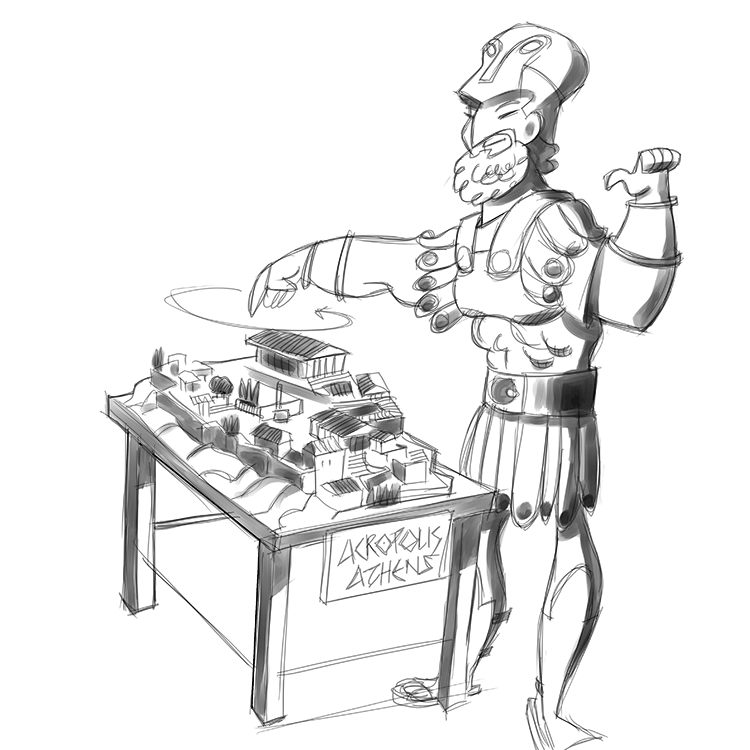
Pericles (540 BC-480 BC)
Another Athenian, Pericles led his city through its most prosperous age. He took power just as the Greco-Persian Wars were coming to an end and helped establish the Delian League, an alliance of city-states led by Athens that eventually morphed into the Athenian Empire.
During this time, Athens stood atop the ancient world, becoming richer and more powerful than ever before.
However, in a way, Pericles also helped contribute to Athens’ demise. His imperial ambitions drew the eye of Athens’ rivals (mainly Sparta) and led to wars fought to keep Athens at bay. Eventually, Athens and Sparta declared war on one another, and Sparta’s superior army defeated its bitter rival.
This victory marked the beginning of the end of the Classical Era. A brief period of Spartan and then Theban dominance followed the empire established by Pericles, but all this did was weaken Greece and leave it susceptible to conquest, which happened in 336 BC when Alexander the Great descended from Macedon on his mission to control the whole world.
Honorable Mentions
There are many names that didn’t make it onto this list. For example, Cimon was a famous general who was integral to Greece’s victory over Persia. Demosthenes stood up to the Macedonians and kept Athens free for as long as he could, and Cassander and Demetrius I went on to rule Greece after Alexander the Great, keeping his legacy alive.
In the end, the list is endless. But what else would you expect from a civilization that so dramatically impacted not only ancient history but also the modern world?
Written by Matthew Jones
Illustrated by Pablo Velarde Diaz-Pache
